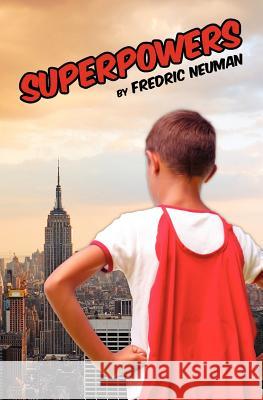Superpowers » książka
Superpowers
ISBN-13: 9781461170167 / Angielski / Miękka / 2011 / 260 str.
"Superpowers" is a very funny, but serious account of a responsible, perhaps too responsible, young man growing up abruptly over a period of a few weeks. Chipper's mother died on a Sunday. He was admitted to the hospital the following Tuesday with what the doctor described as a "life-threatening" asthma attack; and then, as Chipper remarks, "Things began to run downhill." When he wakes up in the hospital, Chipper encounters an apparition, named Hal. Hal, who turns out during his different appearances throughout the book to be moody, sarcastic, funny and cynical, is dressed farcically in strange hats and mismatched socks and a variety of costumes. He explains to Chipper that the world is in peril; and at such times he appears on earth to award a superpower to someone, in this case Chipper, so that person can save the world. It is not clear why Chipper is chosen. Neither, for that matter, is it clear why others throughout history were chosen to receive a superpower. Hal's account of their misadventures for the most part are a hilarious retelling of historical events and stories from mythology. It is, of course, critically important that Chipper picks the right superpower because the life he will lead eventually will be determined by that ability, just as the life everyone else leads is determined by that particular person's strength and weaknesses. Chipper's mother was a loving, but overprotective, woman who thought her son could do anything, any wonderful thing, but was unable to cross the street safely by himself.Without her overbearing guidance, Chipper has to suddenly decide for himself what to do next. Helping him to work out his future, and theirs, are his two best friends: Albert, an enthusiastic but credulous young man who feels doomed by the prospect of going into his father's dress business and by the existence of a younger sister, and John, "the smartest kid in the world," who has self-doubts, nevertheless, and is trying to come to terms with being homosexual. There are vivid and very funny accounts of a seance, a visit to a psychic, and, of course, a poker game. Barbara is Chipper's assertive girl friend who accompanies him to the Junior Prom, although he doesn't remember inviting her. When she is badly burned in an accident, as is Chipper, the two of them are brought to the hospital where Chipper in a benumbed state from pain medication disarms a terrorist who is threatening to blow up the hospital with a bomb. This comical scene takes place in the middle of a police stand-off with the terrorist. Another important character is Pannio, a street kid whose philosophy of enjoying life now represents a counterpoint to Chipper's struggle to decide his future. A still further contrast to Chipper's seriousness of purpose is his older brother's decision to become a hedge-fund manager. Then there is Super, the school superintendent, who is, indeed, super in one particular way, the ability to keep working and enjoying life despite enormous physical handicaps. Finally, there is Chipper's father, a sullen and embittered man whose resentment of his son may rise to dangerous levels. Before dying, Chipper's mother warned him to "watch out" for his father. And there is always in the background of "Superpowers" the tragedy of illness and death. Chipper, who is especially6 maginative and sensitive, tries to put his mother's death out of mind until a psychiatrist brings him back gently to dealing with her loss. But the book is at its heart a witty and optimistic celebration of growing up and of life itself. Growing up means separating from parents and developing one's own values. To some extent, it means challenging authority. It means coping with the uncertainties of sex; and it means, of course, deciding on a career and with it a way of living. In the case of Chipper it means learning how to fulfill his responsibility to other people. And then he gets his superpowe
Zawartość książki może nie spełniać oczekiwań – reklamacje nie obejmują treści, która mogła nie być redakcyjnie ani merytorycznie opracowana.











